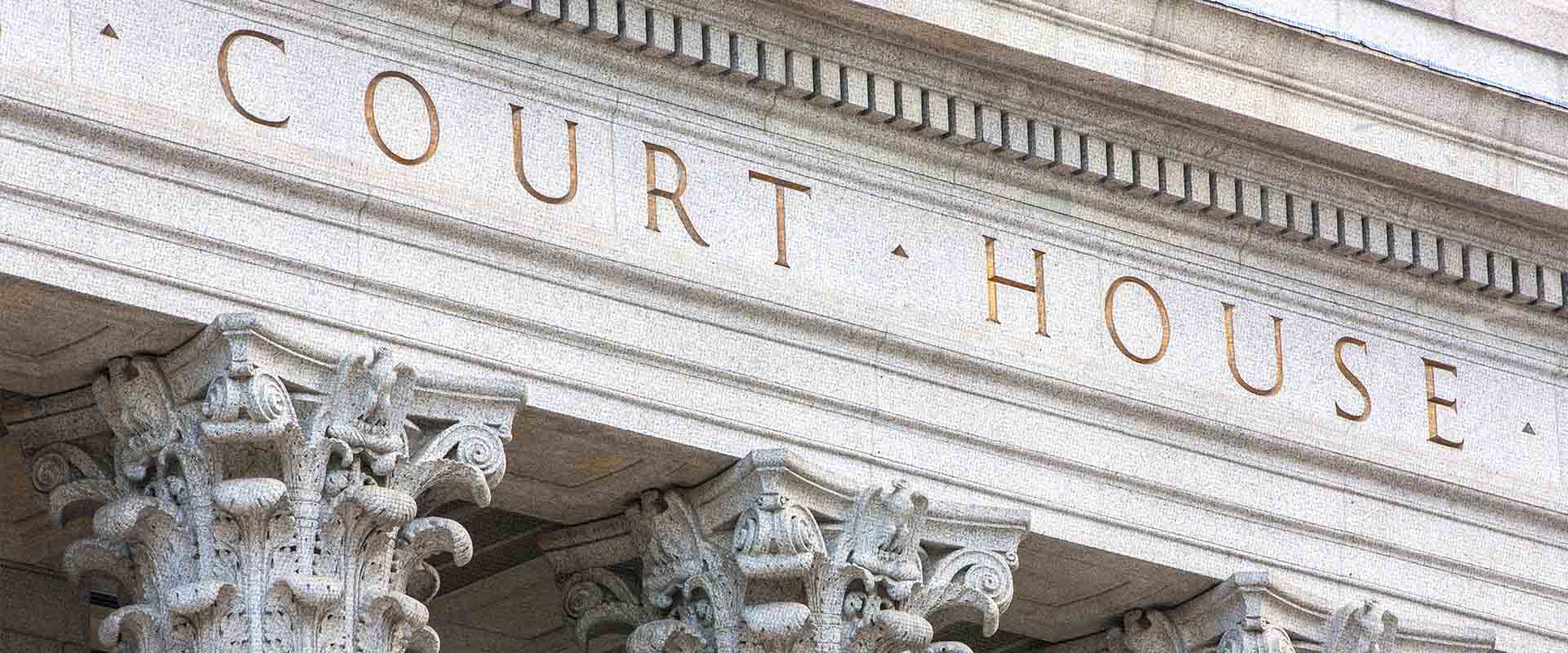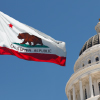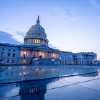UPDATE: Please Note, this Opinion has Been Vacated to Be Heard En Banc by Ninth Circuit
Ninth Circuit Finds COVID-19 Limits on Public School In-Person Learning Permissible, but Not for Private Schools

September 2021
Number 27
UPDATE: Please note, the following Client News Brief is based upon an opinion issued by a three-judge panel of the Ninth Circuit in July 2021. In December, the Ninth Circuit has agreed to hear the case en banc, meaning the chief judge and 10 additional judges will hear the case. This determination means the original opinion is vacated, and the following CNB is therefore for reference only, and does not speak to the final ruling and opinion in this case by the Ninth Circuit.
The U.S. Ninth Circuit Court of Appeals recently issued an opinion in Brach v. Newsom (9th Cir. July 23, 2021, No. 20-56291) __ F.3d __, holding that the 14th Amendment rights of public school students and their parents were not violated when the State of California prohibited in-person learning in counties with high rates of COVID-19. However, the Ninth Circuit’s rationale did not extend to private school students and their parents, finding that the limitations placed on private school operations infringed on parents’ constitutional right to educational choice.
Background
The plaintiffs, including public and private school students and their parents, originally filed a case in U.S. District Court for the Central District of California, challenging various orders issued by California government officials concerning the operation of both public and private schools during the COVID-19 pandemic.
The plaintiffs contended that prohibitions on in-person learning violated their children’s equal protection and due process rights under the 14th Amendment of the United States Constitution and precluded them from receiving a “basic minimum education by adopting a reopening framework that prohibited in-person instruction in counties on the State’s COVID-19 monitoring list."
Ultimately, the district court denied the plaintiffs’ request to prevent the State from enforcing the reopening framework, finding that a judicial order requiring the State to reopen all schools for in-person instruction would not be in the public interest, and that the plaintiffs had not met their burden of establishing a likelihood of success on their constitutional claims.
Appeal to Ninth Circuit
On appeal, the Ninth Circuit affirmed that states may place reasonable restrictions on public school operations during a public health crisis without violating students’ federal constitutional rights.
As to private school operations, however, states may adopt only those restrictions that are necessary to advance a compelling state interest; therefore, California should have tailored its restrictions on private school operations more specifically.
In drawing this distinction between the limitations that can be placed on public school students as compared to private school students, the Ninth Circuit relied on a long line of precedent in which courts have repeatedly declined to recognize a federal constitutional right (as opposed to a right under a state constitution or statutory framework) to a public education. The court did, however, recognize parents’ fundamental and constitutionally protected due process right to control their children’s upbringing, including their education and to choose their educational forum (public, private, or homeschool).
Recognizing that there is no enforceable right to a public education under the U.S. Constitution, the Ninth Circuit held that restrictions on public school operations were constitutional so long as they related to a legitimate government interest. The Ninth Circuit determined that California’s limitations met that standard, finding that the “pandemic is not only a legitimate state interest, but a compelling one... and California has provided an ample basis for concluding that, as a matter of law, its refusal to allow in-person public school instruction is rationally related to furthering that interest."
In the private school context, the Ninth Circuit highlighted that parents have a fundamental right to be free of government interference in their choice to privately educate their children. The court interpreted this to include the right to choose in-person instruction, so long as it is not harmful or dangerous to the public. California officials could not deprive parents of that right unless it could show the restrictions were narrowly tailored to advance a compelling state interest. Noting that California’s restrictions were more extensive than those found in other states, were not the least restrictive options available, and did not account for the lower risk of infection for children, the court held that California’s school closure orders were overly broad as applied to private school students and violated the plaintiffs’ right to privately educate their children. The court also noted that many of the State’s private schools wanted to and would have provided in-person instruction absent the State’s ordered limits.
Takeaways
States may place reasonable restrictions on public school operations, including limiting or prohibiting in-person learning, during a public health crisis without violating students’ constitutional rights, as there is no federally recognized right to a public education. For private schools, however, states may only adopt those restrictions that are necessary to advance a compelling state interest, as a parent’s right to privately educate their child is protected under the United States Constitution. While the compelling state interest in stopping the spread of COVID-19 justifies broad restrictions on public schools, restrictions should be more specifically tailored as to private schools.
If you have any questions about this ruling or need more information regarding reopening frameworks or limitations on in-person learning generally, please contact the authors of this Client News Brief or an attorney at one of our eight offices located statewide. You can also subscribe to our podcasts, follow us on Facebook, Twitter and LinkedIn or download our mobile app.
Number 27
UPDATE: Please note, the following Client News Brief is based upon an opinion issued by a three-judge panel of the Ninth Circuit in July 2021. In December, the Ninth Circuit has agreed to hear the case en banc, meaning the chief judge and 10 additional judges will hear the case. This determination means the original opinion is vacated, and the following CNB is therefore for reference only, and does not speak to the final ruling and opinion in this case by the Ninth Circuit.
The U.S. Ninth Circuit Court of Appeals recently issued an opinion in Brach v. Newsom (9th Cir. July 23, 2021, No. 20-56291) __ F.3d __, holding that the 14th Amendment rights of public school students and their parents were not violated when the State of California prohibited in-person learning in counties with high rates of COVID-19. However, the Ninth Circuit’s rationale did not extend to private school students and their parents, finding that the limitations placed on private school operations infringed on parents’ constitutional right to educational choice.
Background
The plaintiffs, including public and private school students and their parents, originally filed a case in U.S. District Court for the Central District of California, challenging various orders issued by California government officials concerning the operation of both public and private schools during the COVID-19 pandemic.
The plaintiffs contended that prohibitions on in-person learning violated their children’s equal protection and due process rights under the 14th Amendment of the United States Constitution and precluded them from receiving a “basic minimum education by adopting a reopening framework that prohibited in-person instruction in counties on the State’s COVID-19 monitoring list."
Ultimately, the district court denied the plaintiffs’ request to prevent the State from enforcing the reopening framework, finding that a judicial order requiring the State to reopen all schools for in-person instruction would not be in the public interest, and that the plaintiffs had not met their burden of establishing a likelihood of success on their constitutional claims.
Appeal to Ninth Circuit
On appeal, the Ninth Circuit affirmed that states may place reasonable restrictions on public school operations during a public health crisis without violating students’ federal constitutional rights.
As to private school operations, however, states may adopt only those restrictions that are necessary to advance a compelling state interest; therefore, California should have tailored its restrictions on private school operations more specifically.
In drawing this distinction between the limitations that can be placed on public school students as compared to private school students, the Ninth Circuit relied on a long line of precedent in which courts have repeatedly declined to recognize a federal constitutional right (as opposed to a right under a state constitution or statutory framework) to a public education. The court did, however, recognize parents’ fundamental and constitutionally protected due process right to control their children’s upbringing, including their education and to choose their educational forum (public, private, or homeschool).
Recognizing that there is no enforceable right to a public education under the U.S. Constitution, the Ninth Circuit held that restrictions on public school operations were constitutional so long as they related to a legitimate government interest. The Ninth Circuit determined that California’s limitations met that standard, finding that the “pandemic is not only a legitimate state interest, but a compelling one... and California has provided an ample basis for concluding that, as a matter of law, its refusal to allow in-person public school instruction is rationally related to furthering that interest."
In the private school context, the Ninth Circuit highlighted that parents have a fundamental right to be free of government interference in their choice to privately educate their children. The court interpreted this to include the right to choose in-person instruction, so long as it is not harmful or dangerous to the public. California officials could not deprive parents of that right unless it could show the restrictions were narrowly tailored to advance a compelling state interest. Noting that California’s restrictions were more extensive than those found in other states, were not the least restrictive options available, and did not account for the lower risk of infection for children, the court held that California’s school closure orders were overly broad as applied to private school students and violated the plaintiffs’ right to privately educate their children. The court also noted that many of the State’s private schools wanted to and would have provided in-person instruction absent the State’s ordered limits.
Takeaways
States may place reasonable restrictions on public school operations, including limiting or prohibiting in-person learning, during a public health crisis without violating students’ constitutional rights, as there is no federally recognized right to a public education. For private schools, however, states may only adopt those restrictions that are necessary to advance a compelling state interest, as a parent’s right to privately educate their child is protected under the United States Constitution. While the compelling state interest in stopping the spread of COVID-19 justifies broad restrictions on public schools, restrictions should be more specifically tailored as to private schools.
If you have any questions about this ruling or need more information regarding reopening frameworks or limitations on in-person learning generally, please contact the authors of this Client News Brief or an attorney at one of our eight offices located statewide. You can also subscribe to our podcasts, follow us on Facebook, Twitter and LinkedIn or download our mobile app.
Disclaimer: As the information contained herein is necessarily general, its application to a particular set of facts and circumstances may vary. For this reason, this News Brief does not constitute legal advice. We recommend that you consult with your counsel prior to acting on the information contained herein.







